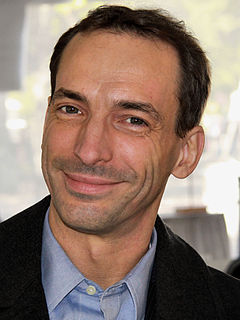A Quote by Vernon Wells
You're going to fail. It's how you respond to that failure that kind of defines you as a person, as an athlete.
Related Quotes
Failure's relative. I've always felt, even early on, if I lose the freedom to fail, something's not right about that. It's how you treat failure, too. There's something to learn from it. I've had movies that have failed colossally, so you kind of analyze your failures: What kind of failure was it? A failure because it's misunderstood by others? A failure because you misunderstood it yourself?
Here's a memonic device that I feel teaches how we can properly cope with failure. Forget about your failures; don't dwell on past mistakes Anticipate failure; realize that we all make mistakes. Intensity in everything you do; never be a failure for lack of effort. Learn from your mistakes; don't repeat previous errors. Understand why you failed; diagnose your mistakes so as to not repeat them. Respond, don't react to errors; responding corrects mistakes while reacting magnifies them. Elevate your self-concept. It's OK to fail, everyone does; now how are you going to deal with the failure
So you think that you're a failure, do you? Well, you probably are. What's wrong with that? In the first place, if you've any sense at all you must have learned by now that we pay just as dearly for our triumphs as we do for our defeats. Go ahead and fail. But fail with wit, fail with grace, fail with style. A mediocre failure is as insufferable as a mediocre success. Embrace failure! Seek it out. Learn to love it. That may be the only way any of us will ever be free.
Think of it this way: There are two kinds of failure. The first comes from never trying out your ideas because you are afraid, or because you are waiting for the perfect time. This kind of failure you can never learn from, and such timidity will destroy you. The second kind comes from a bold and venturesome spirit. If you fail in this way, the hit that you take to your reputation is greatly outweighed by what you learn. Repeated failure will toughen your spirit and show you with absolute clarity how things must be done.
I'm pretty easily overwhelmed and pretty tough as well. I think I'm tougher than I used to be. There's been a lot of hardship along the way. But that's what life is. And it's how you deal with those things, and how you let them shape you that makes you a better person and defines what sort of person you're going to be.
When I was growing up, my dad would encourage my brother and I to fail. We would be sitting at the dinner table and he would ask, 'So what did you guys fail at this week?' If we didn't have something to contribute, he would be disappointed. When I did fail at something, he'd high-five me. What I didn't realize at the time was that he was completely reframing my definition of failure at a young age. To me, failure means not trying; failure isn't the outcome. If I have to look at myself in the mirror and say, 'I didn't try that because I was scared,' that is failure.





































